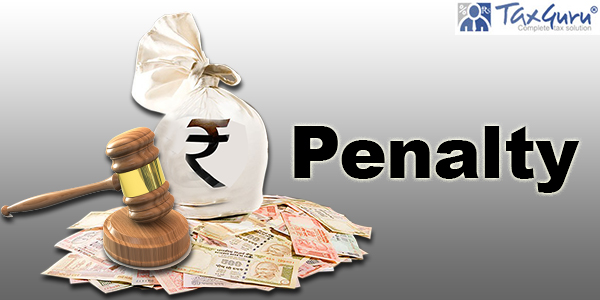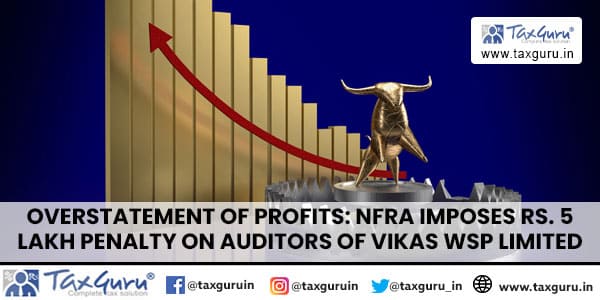Saibal C. Pal
 IPL – Sweat Equity Share Issue – recognition of intellect as means to capital contribution in Corporates – IP audit in offing!
IPL – Sweat Equity Share Issue – recognition of intellect as means to capital contribution in Corporates – IP audit in offing!
1. Introduction
Indian Premier League (IPL) and cricket have generated public interest on the subject, `sweat equity ‘shares issue. Survey reveals, very few people have clear idea on the procedure of issue of sweat equity shares. What caused hue and cry is the subject of surrender of sweat equity shares issued to Sunanda Pushkar ( PUSHKAR’) in Rendexvous Sports Word ( `RSW’), stakeholder in IPL Kochi. RSW is an unlisted company. Newspaper headlines carried the news on surrender of shares of the value of Rs 70 crore to RSW by Pushkar which is stated to have been obtained free of cost. The shares represents 18 per cent of the paid up share capital. The holding is said to be about 4.5 per cent in IPL Kochi. Provisions of the Companies Act, 1956 (`COMPANIES ACT’) permit issue of bonus shares to members by capitalization of reserves out of Premium Account and Capital Redemption Reserve Account. Article 96 of Table A included in Schedule I provides for the same. Shares are issued to existing members without any cost. Members do not have to pay any sum for bonus shares unless partly paid shares are made fully paid up. Shares issued to Pushkar in RSW were not bonus shares and such shares are not sweat equity shares. There are separate provisions which guide issue of sweat equity shares.
2. Intellectual Property Rights & Equity Issue.
India became a member of World Trade Organisation (WTO) in 1994 and was required to follow the rules applicable. Intellectual laws have been gradually streamlined since then to be at par with international standard. Human intellect and their contribution to industrial enterprise came to be recognized in corporate. Employees contributing to an organization started being remunerated through shares. Concept of using company shares as remuneration or reward owes its origin in the famous Silicon Valley of US. Employees and start- ups joined together to build an eco-system that allowed technology start-ups to access talented resources and high quality services in return for the company shares. Many of these start-ups are to-day in the Fortune 100 list. All start- ups did not succeed to become Microsoft or HP many have licked the dust. In the year 2000 technology shares gained prominence before disappearance and affected substantial number of investors. When a company fails, the shares do not have any value and it is the risk-reward judgment an individual has to deal with in deciding to acquire shares in the equity market. IPR forms the basis of sweat equity share issues. Trade Mark, 1999, Copyright 1957, Patent, 1970 and Design, 2000 constitute IP laws. The Companies Act was amended through the Companies (Amendment) Act, 1999 passed on 31.10.1998 and S 79A was inserted to recognize IPR. The Act allowed equity shares to be issued for IPR contributed to the business either by the promoter or any person. IPR was therefore, required to be valued as per the Sweat Equity Shares issue rules. S 79 of the Companies Act provides that sweat equity shares of a class of shares may be issued if the following conditions are fulfilled:
(a) Issue of such shares is authorized by Special Resolution.
(b) Resolution specifies the number of shares, current market price, consideration, if any, and class(es) of directors or employees to whom such shares are to be issued ( such shares may be issued for consideration other than cash).
(c ) One year has elapsed since the date on which the company was entitled to commence business.
(d) Equity Shares are issued in accordance with the Regulations framed by SEBI for listed companies.
[Explanation I to S 79 states that company in relation to the section means a company whose equity shares are not listed on any recognized Stock Exchange and they are to be issued in accordance with the guidelines prescribed.]
Company form of organization continues to be the most popular form of enterprise. An operation of a company is dependent on capital. It is the promoters who arrange for infusion of capital into a company. From the outlay of capital, promoters earn profit which is either retained or distributed as the fruit of their labour. Until the amendment of 2000, Capital brought into the company meant cash being brought in by the promoters. A share capital is divided into units of Rs 10 or Rs 100 each and are of two types preference and equity. By preference we mean preference as to payment of dividend if the company declares dividend. Equity Shares determine control of a company. Persons owning majority of the shares of a company are in control. Those in control may not manage the company and may leave it to professionals to manage day to day operations popularly known as professional management. Control is an important tool in corporate management. Majority control gives the right of management. Where Government owns 51 per cent of the share capital, the company is a Government Company (S 617).
The Companies Act provides for issue of sweat equity shares to employees and/or directors of companies on favourable terms in recognition of their work. Idea is to retain talent in companies. Attrition of technical personnel is a major problem for companies and mechanisms are adopted to ward away the problem. There is no limit to the discount in issue of such shares offered. Sweat equity makes employees part owners of the company and gives them a share of profit earned; however, the person to whom a company may issue sweat equity is he should either be a Director or employee.
Rules for issue of sweat equity shares for listed and unlisted companies have been issued by SEBI and DCA separately. SEBI issued the SEBI (Issue of Sweat Equity) Regulations, 2002 which came into effect from 27.08.2003. Issue for unlisted companies came to be regulated by the Unlisted Companies (Issue of Sweat Equity Shares) Rules, 2003 which came into effect from 4/12/2003. Unlisted companies wanting to list through IPOs have to comply with the rules laid down in the SEBI (Issue of Capital and Disclosure Requirements) Regulations, 2009
3. Difference between Sweat Equity Shares and Stock Options.
Sweat Equity shares and Stock Options issued by listed companies are not the same. However, both are means for conversion of non-cash incentive or compensation to individuals who are either whole-time directors and/or employees. Sweat Equity shares are allotted shares to individuals who are either Directors or employees upfront. Stock option is a right enjoyed by a Whole-Time Director or employee to acquire shares of the company at a future date at a pre-agreed price. Difference between the two concepts led to the issue of different set of guidelines for sweat equity and stock option issues.
4. SEBI Regulations on issue of Sweat Equity Share
R 4 to 14 of the SEBI (Issue of Sweat Equity) Regulations, 2002 include the manner of issue of sweat equity shares for listed companies. R 4 provides for issue of shares to employees and whole-time directors. R 5 states that of the special resolution to be passed in the general meeting by the members for issue of such shares. Explanatory statement to be attached to the notice must include detail as per the schedule to the rules. R 6 states of issue of sweat equity to promoters. R 7 deals with the price of issue of such shares which must not be less than higher of the following amount:
(a) average of the weekly high and low of the closing prices of related equity shares during the last six months preceding the relevant date; or
(b) the average of the weekly high and low of the closing prices of the related equity shares during the two weeks preceding the relevant date.
Relevant date is stated to mean the date which is 30 days prior to the date on which the general meeting is convened or in other words date of issue of the notice. For shares quoted in more than one stock exchange, price in the exchange where the shares are traded must be considered. Where shares are not quoted on the given date, the share price on the next trading day shall be considered. Intellectual Property which forms the basis of a sweat equity issue shall be valued by a merchant banker who shall obtain a certificate from an independent Chartered Accountant that valuation of the IP forming the basis of the issue is as per the relevant accounting standard. At the general meeting, Board of Directors of the issuing company is required to place a certificate issued by the Statutory Auditor that the issue is in accordance with the Regulations. Value of sweat equity shares is included in calculating the limit of payment of managerial remuneration stated in S 269 read with Schedule XIII to the Act. Sweat Equity Shares are required to be locked in for a period of 3 years.
Such shares are listed by the stock exchange on compliance of the rules. Acquisition of such shares pursuant to the regulations attracts provisions of the SEBI (SAST) Regulations, 1997. SEBI issued the SEBI (Employee Stock Option Scheme and Employee Stock Purchase Scheme) Guidelines, 1999 which was amended in 2003 and 2008. The guidelines entitle employees and Whole-Time Directors to purchase or subscribe to shares as per the plan for offer of the securities at a pre-determined price on a future date which is supposed to be exercised within a year of the entitlement.
5. Equity Shares issue with differential rights.
The Companies (Amendment) Act, 2000 was amended on 13.12.2000. S 86 was amended to authorize issue of equity shares with differential rights as to dividend, voting or otherwise in accordance with such rules and conditions. Unlisted companies are permitted to issue such shares till date. However, listed companies can no more issue shares with differential voting rights. Clause 48A of the listing agreement inserted in 2009 prohibits the issue of such type of shares. In US, New York Stock Exchange (NYSE) permits listed companies to issue shares carrying super-voting rights typically carrying ten times the vote entitlement carried by the ordinary shares. Accordingly, Ford family, commands and controls 40 per cent of the voting rights of Ford Motors with a mere 4 per cent stake in the equity. Upto the year 2009 listed companies were allowed to issue shares with differential voting rights but this right continued for a short duration and Tatas were the first to issue such shares which are still traded. There were only two such issues in India before the bar was imposed. It is important to debate whether such shares should be allowed to be issued in future considering the emergence of technocrat entrepreneurs who need protection and need recognition in terms of value through such issues.
6. Issue of Sweat Equity Shares by unlisted companies
Central Government issued rules in exercise of Ss (1) of S 79A of the Companies Act, 1956 r/w Ss (1) of S 642 being the Unlisted Companies (Issue of Sweat Equity Shares) Rules, 2003. Various definations in the rules are given as under to help in the discussion:
(i) “Asset “means a resource controlled by the company and from which future economic benefits are expected to flow to the company.
(ii) “Employee” means –
(a) a permanent employee of the company working India or out of India; or
(b) a director of the company, employed as a Whole-Time Director or Executive Director of a company.
[Note: Executive Director is not defined in The Companies Act, 1956 nor the rules. Such directors usually include promoters and the term promoter has not been clearly defined in the Companies Act.]
(iii) “Intangible Asset “means an identifiable non-monetary asset, without physical substance, held for use in production or supply of goods or services, for rental or others, or for administrative purposes.
(iv) “Share price” means price of a share on a given date arrived on the net worth basis.
(v) “ value addition” means anticipated economic-benefits derived by enterprise from expert and/or professional for providing know-how or making available rights in the nature of intellectual property rights, by such person to whom sweat equity is issued for which the consideration is not paid or included in –
(a) The normal remuneration payable under the contract of employment, in the case of an employee; and/or
(b) Monetary consideration payable under any other contract in the case of non-employee.
[Note: Obviously it refers to Whole-Time Director]
Rule 4 states that for the purpose of passing a special resolution under clause (a) of ss (1) of S 79A of the companies Act, 1956, the Explanatory Statement to be annexed to the notice for general meeting pursuant to S 173 of the said Act shall contain particulars as specified below:
(i) the date of the meeting at which the proposal for issue of sweat equity shares were approved by the Board of Directors of the Company;
(ii) the reasons/justification for the issue;
(iii) the number of shares, consideration for such shares and the class or classes of person to whom such equity shares are to be issued;
(iv) the value of the sweat equity shares along with valuation report/basis of valuation and the price at the which the sweat equity shares are to be issued;
(v) the names of persons to whom the equity will be issued and person’s relationship with the company;
(vi) ceiling on managerial remuneration, if any, which will be affected by issuance of such equity;
(vii) a statement to the effect that the company shall conform to the accounting policies specified by the Central Government;
(viii) diluted earning per share pursuant to the issue of securities to be calculated in accordance with the Accounting Standards specified by the `Institute of Chartered Accountants of India’.
(2) Approval of shareholders by way of separate resolution in the general meeting shall be obtained by the company in case of grant of shares to identified employees and promoters, during anyone year, equal to or exceeding 1 % of the issued capital (exceeding outstanding warrants and conversion) of the company at the time of grant of the sweat equity shares.
Rule 6 of the Rules lays down the restriction on issue of sweat equity shares. The company shall not issue sweat equity shares for more than 15 per cent of total paid up equity share capital in a year or shares of the value of Rs 5 Crores whichever is higher except with the prior approval of the central Government.
Rule 7 states of disclosures required to be made in the Directors’ Report of the sweat equity shares including the number of shares to be issued to employees or Whole-Time/ Executive Directors, condition of issue of sweat equity shares; pricing formula, total number of shares arising as a result of issue of sweat equity shares, money realized or benefit accrued to the company from the issue of sweat equity shares, diluted Equity Shares Per Share(EPS) pursuant to issuance of sweat equity shares.
Rule 8 states that the price of the sweat equity shares shall be at a fair price calculated by an independent valuer.
Rule 9 states regarding the issue of sweat equity shares for consideration other than cash, the company has to comply to the following:
a. Valuation of the IP or the know-how provided or other, value addition to the consideration at which sweat equity capital is issued, shall be carried out by a valuer;
b. the valuer shall consult such experts, as he may deem fit, having regard to the nature of the industry and the nature of the property or the value addition;
c. the valuer shall submit a valuation report to the company giving justification for the valuation;
d. a copy of the valuation report of the valuer shall be sent to the shareholders with the notice of the general meeting;
e. the company shall give justification for issue of sweat equity shares for consideration other than cash, which shall form part of the notice sent for general meeting; and
f. the amount of Sweat Equity shares issued shall be treated as part of managerial remuneration for the purposes of Ss 198, 309, 310,311 and 387 of the Companies Act,1956 if the following conditions are fulfilled:
(i) the Sweat Equity Shares issued to any director or manager; and
[ note:` Manager’ within the meaning of the Companies Act,1956.]
(ii) they are issued for non-cash consideration, which does not take the form of an asset which can be carried to the balance sheet of the company in accordance with the relevant accounting standards.
As per Rule 10 lock-in of sweat equity shares issued to employees or directors shall be locked in for a period of three years from the date of allotment.
As per Rule 11 every company that has allotted shares under the Rules, the Board of Directors shall at each annual general meeting place before the shareholders a certificate from the auditors of the Company/Practising Company Secretary that sweat equity shares have been allotted in accordance with the resolution of the company in the general meeting and these Rules.
Rule 12 states that where the sweat equity shares are issued for non-cash consideration, such non-consideration shall be treated in the following manner in the books of account of the company:
(a) where the non-cash consideration takes the form of a depreciable or amortizable asset, it shall be carried to the balance sheet of the company in accordance with the relevant accounting standards; or
(b) where clause(a) is not applicable, it shall be expensed as provided in the relevant accounting standards.
(2) In respect of sweat equity shares issued during accounting period, the accounting value of sweat equity shares shall be treated as another form of compensation to the employee or the director in financial statement of the company.
7. Sweat Equity Issue & IPL/RSW – Case Study
Puskar surrendered Rs 70 Cr worth of shares in RSW which was issued under Companies Act read with the applicable rules for unlisted companies, a stake holder in IPL Kochi. It is reported that RSW was incorporated for less than a year. It is an unlisted company. Therefore, RSW, the company could not have issued shares exceeding 15 per cent of the paid up capital or Rs 5 crore whichever is higher even though Puskar was a Whole-Time Director / Executive Director or whole-time employee of RSW. But it is not clear in what capacity the shares were issued to Puskar.
Further if RSW is in existence for less than a year, the company could not have been issued the shares without Central Government permission. There is again the fact of surrender of Rs 70 Crore worth of shares. The Sweat Equity Rules for unlisted companies do not include any provision for surrender of shares. Surrender of stock option is allowed but the said rules are not applicable to unlisted companies. Sweat Equity and Stock Option are not the same. Both are issued under different rules. Sweat Equity Shares come into existence only after allotment. The allottees cannot surrender the shares to the company unless a buyback scheme is announced by the company. In the case of Pushkar, the reported surrender in ordinary parlance means returning back the share certificate to the company. The company cannot hold on to it even if they are sent as surrender. Cancellation of the shares is the only option which is not possible unless permission from the High Court is obtained. Buy back of unlisted company shares are regulated by the Private Limited Company and Unlisted Public Limited Company (Buy-back of securities) Rules, 1999. If the company adopts the route then the question arises as to whom the amount of the shares will be paid as reports state that Pushkar intends not to be a part of the issued shares.
8. Conclusion
Issue of sweat equity shares have given rise to many questions which are required to be answered in public interest. Summing up the provisions of sweat equity for both listed and unlisted companies we find that the law has recognizes contribution of intellect in business and allows valuation of such contribution in business. Recent reports have alerted all. It is time to monitor the application of the provisions on the subject in the right perspective. Good intentions must not be allowed to be vitiated by misuse. It is through the game of cricket common man (`am admi’) has learnt the term sweat equity if not all of the rules not by correct application of the provisions of the statute books but by alleged misuse of the same which has raised the questions by experts who are advocating the introduction of `IP’ audit for safeguard of its use in future. `IP’ stands for intellectual property and in the US there is the practice of `IP’ audit. Ultimate findings in the case will form the basis for adoption of new measures for safeguarding issue of sweat equity shares by companies in the days ahead which could include the introduction of `IP’ audit for companies adopting allotment sweat equity shares.






















you have pointed out there is a difference between sweat equity and stock options. Where can this difference be found in the companies Act or any other regulations issued under it or by SEBI ?
Neither S 79A nor the rules framed define sweat and shares differently. They give the enabling provisions under the Act.
What is the difference between “shares” ad simpliciter and “sweat equity” ? Is it because one has to literally sweat for getting such ‘sweat’ shares?